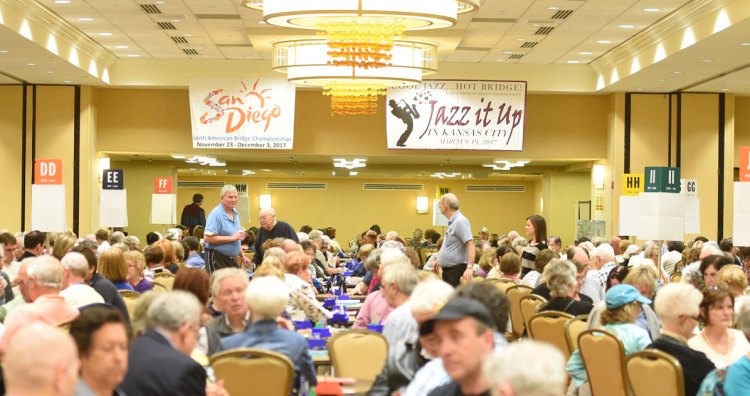But movement is still key.
A recent 16 year study of 3720 men and 1412 women published in the International Journal of Epidemiology concluded that sitting, in any setting, does not increase the risk of an early death.
A recent 16 year study of 3720 men and 1412 women published in the International Journal of Epidemiology concluded that sitting, in any setting, does not increase the risk of an early death.

One thing is certain – bridge players spend a lot of time sitting. ACBL notes that at an average bridge session you will play two to four boards at each table and a total of 20-28 for the entire session. You are allowed an average of about seven and a half minutes for each board which can equal as much as 3 and a half hours sitting during a typical session of bridge. And at bridge tournaments where we often play 3 or even 4 sessions, this can add up!
In a follow-up article posted by the Daily Mail co-author of the study Dr Melvyn Hillsdon noted “Our study overturns current thinking on the health risks of sitting and indicates that the problem lies in the absence of movement rather than the time spent sitting itself”
We sit on the plane to get to the tournament, we sit all day during the tournament, and we relax in the evening at the pub or in the hospitality room after the tournament, and for some, at the gambling tables in a host casino.
The negative effects found in previous studies is now thought to come from lack of movement rather than from sitting in of itself. Breaking up your sitting time will benefit your heart and general health.
During a bridge game or while attending a tournament, consider ways to stand up and move your body. You’ll burn calories and the muscle activity triggers important breakdowns of fats and sugars. This process can stall while you’re sitting, but standing and moving with kick them back into action.
Here are some suggestions:
If you find you’ve been sitting for longer than 20 minutes, when you’re dummy, consider leaving the table for a visit to the water fountain or washroom. In an article on Bridge Winners titled Respecting the Duplicate Clock, Gavin Wolpert suggests that visiting the washroom while you’re dummy will also help not hold up play.
Consider standing to move your body a bit between rounds, even if you’re waiting for the next table. If you’ve finished your round quickly, you might have to leave the playing area in order to not overhear bidding or see the play on other hands. However, you don’t want to hold up play for the next round yourself. If you do leave the playing area to stretch in the lobby, be sure to keep your eye on the clock.
Between sessions, be sure to walk. Your post mortems and team meetings can happen during a walk around the grounds as easily as in your hotel room or the lounge. You and your partner or teammates will feel refreshed and ready for another session after breathing outside air and sparking your body systems.
Playing for long periods at a casino card table can present the same problems as a bridge table. If you’re playing live poker in a casino, you can leave whenever you want with no explanation necessary – just pack up your chips and head out. It’s quite socially acceptable. However, you might have had to wait on a list to get into the game, and you’re not ready to give up your spot.
In this case, it’s ok to get up and go to the bathroom or just move around a bit. Although don’t do this while you are in the middle of a hand (even if you plan on folding). Note: the best time to use the bathroom when playing Texas hold’em (limit or no-limit), is after the dealer button has passed you. You won’t lose your place for this quick break. In fact, many poker rooms allow players to leave for a longer break, and usually have a set time. However, if you’re late, you’ll lose your spot. If you think you’re going to be gone longer, again, just pack up your chips and come back later.
Playing online casino games can lead to long periods of sitting as well. Be sure to get up and walk around at least 10 minutes out of every hour. Play with guts, then walk it off.
USA Today stated, in 2005, that the average age of a member of the ACBL was 67. Did you know studies have shown that 30 minutes of slow walking can benefit seniors and disabled as much as 30 minutes of more intense exercise can benefit younger people?